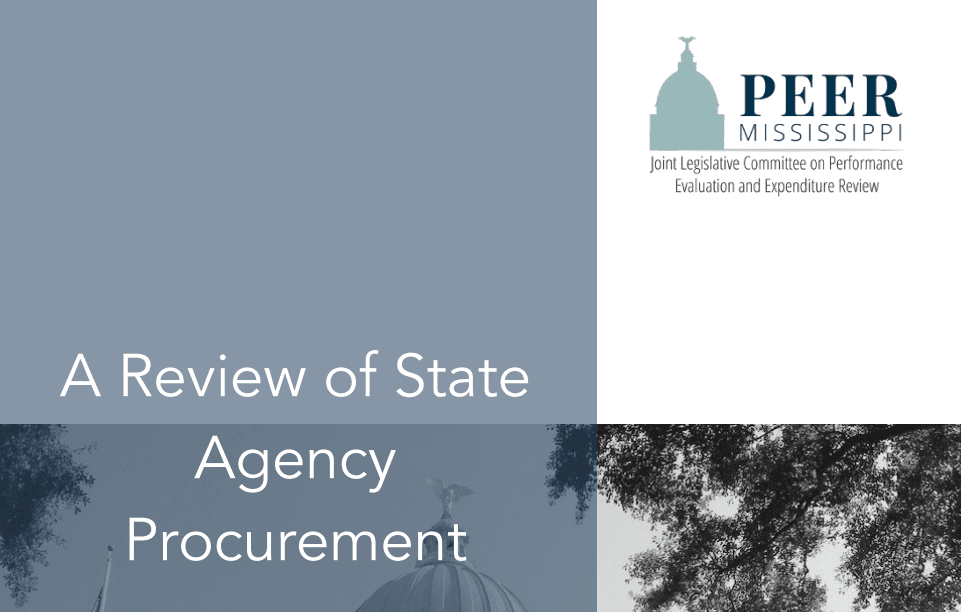
Between January 2018 and June 2022, 23 of the 32 procurements that were not approved were due to best practices violations.
On Friday, the Mississippi Legislative PEER Committee released its latest report titled A Review of State Agency Procurement.
Competitive sealed bidding is the preferred method for state procurement, PEER notes, adding that request for proposals (RFPs) and request for qualifications (RFQs) are alternative methods of state procurement.
The procurement process for RFPs and RFQs is dictated by the best practices found in MISS. CODE ANN. Section 31-7-401 (1972) et seq. Statute dictates that the procuring agency must complete all aspects of the process.
PEER reports that the statutory nature of the best practices has been problematic because the Public Procurement Review Board (PPRB) staff does not have discretion to recommend approval of procurements with best practices violations. For example, in instances of some blind scoring violations, the procurement is often not recommended for approval even if, in spite of the violations, the procurement would have been competitive.
According to their findings, PEER notes that between January 2018 and June 2022, 23 of the 32 procurements that were not approved were due to best practices violations.
The most common types of best practices violations were blind scoring violations, violations against public notice or publication of documents, and failure to obtain a petition for relief from competitive sealed bidding from PPRB.
PEER estimated the cost of procurements that were not approved due to best practices violations to be $271,188.
Additionally, the Mississippi Department of Finance and Administration (DFA) identified at least 9 out of 22 instances in which procurements were not approved due to best practices violations turned into emergency procurements.
The PEER committee says DFA should implement its midpoint review process and the secondary evaluation committee as means of corrective action for policy issues with the statutory procurement best practices (e.g., blind scoring violations). DFA should also evaluate the success of the midpoint review, and if successful, return to the Legislature during the 2024 Regular Legislative Session to update the PEER Committee and the Senate and House Accountability, Efficiency, and Transparency Chairmen on its progress.
PEER goes on to say that DFA should build a series of information quick reference guides and make them easily accessible on its website which detail: a step-by-step guide to the RFP/RFQ process, important RFP/RFQ requirements, and a general Frequently Asked Questions section for the RFP/RFQ process.
To read the full report, click here.











